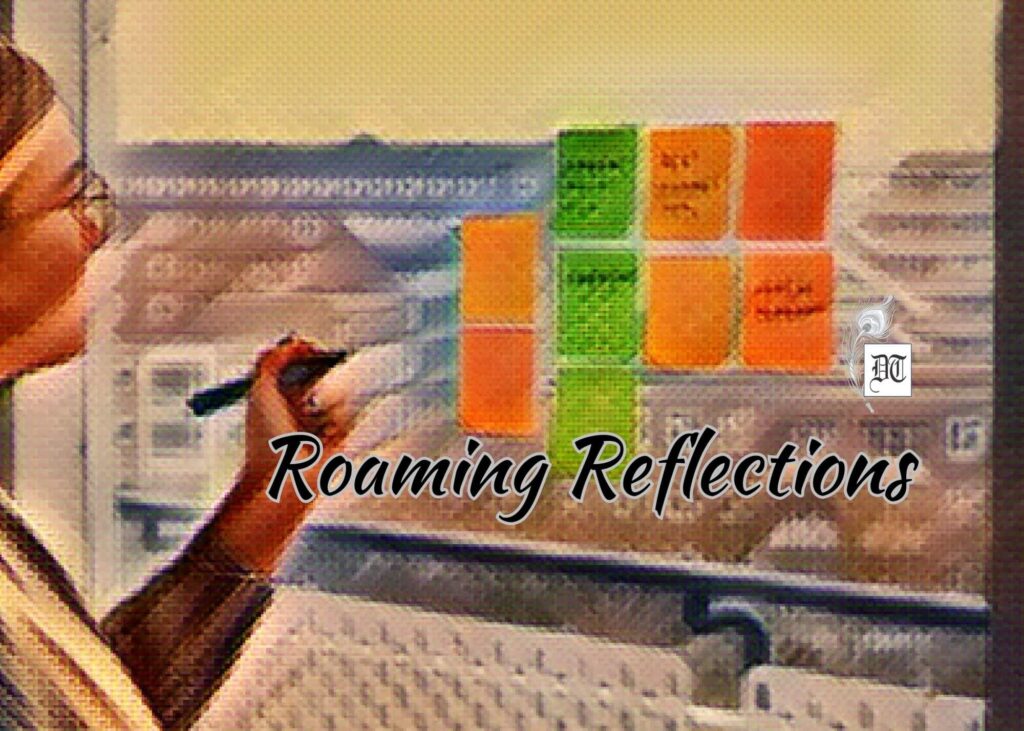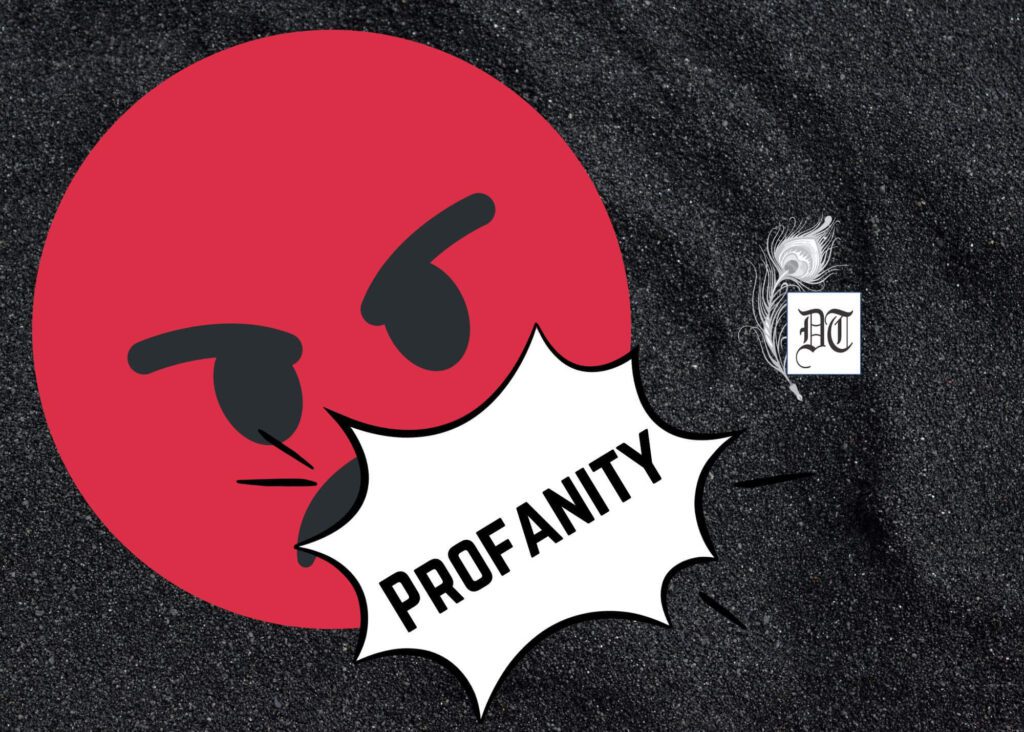Farheen explores the issue of abusive language in India, highlighting the media’s role and efforts to combat it, exclusively for Different Truths.

Language is a powerful tool for communication, connection, and cultural expression. However, like any other aspect of society, it can also be a source of divisiveness and harm. In India, a linguistically diverse nation with over 1.3 billion people, the use of slurs, foul language and abusive language are unfortunate realities. Let’s explore the prevalence, impact, and efforts to combat such language in the Indian context, highlighting the need for awareness, education, and a more inclusive linguistic environment.
The influence of social media on language usage cannot be ignored, especially for the younger generation. To appear “cool” and project a modern outlook, many youngsters resort to using foul language and adopting slang as a fashion statement. Social media platforms have played a significant role in normalising this behaviour by showcasing popular influencers and celebrities who frequently employ abusive language for shock value or to gain attention.
This portrayal creates a perception that using slurs and foul language is trendy and acceptable. It is crucial to recognise the negative implications of this trend and work towards promoting more responsible and respectful use of language, both online and offline.
Today, it It has become alarmingly common for people to resort to abusive language without hesitation.
Today, it is common for people to resort to abusive language without hesitation. They often justify this behaviour by pointing to its prevalence among their family, friends, and the local environment. Shockingly, those who refrain from using abusive language are often viewed negatively, while those who engage in such behaviour are elevated to a position of privilege. They seem to take pride in insulting and demeaning others as if it is a remarkable feat. Instead of discouraging and condemning this behaviour, there is a disturbing trend of endorsing and promoting it, perpetuating a harmful cycle.
· Linguistic Diversity in India: India boasts an incredible linguistic diversity with over 1,600 languages spoken across its vast expanse. Hindi, Bengali, Telugu, Marathi, Tamil, Urdu, and Gujarati are just a few among the many languages spoken in different regions. While linguistic diversity is a treasure, it also presents challenges when it comes to language usage. With numerous regional languages and dialects, misunderstandings and linguistic clashes can occur, leading to the use of slurs, foul language, and abusive speech.
Slurs, foul language, and abusive language can be found in various contexts in India.
· Prevalence and Impact: Slurs, foul language and abusive language can be found in various contexts in India. They are used in personal exchanges, in public spaces, on social media platforms and even in popular media. Such language not only perpetuates stereotypes, discrimination and violence but also undermines the dignity of individuals and communities. It creates an environment of hostility, exclusion and fear, impeding social cohesion and hindering progress toward a more inclusive society.

· Role of Media and Popular Culture: Media, including television, film, and social media, wields significant influence over public discourse and language usage. Unfortunately, slurs and abusive language are often used for comedic effect or shock value, perpetuating harmful stereotypes and normalizing derogatory language. While freedom of speech is a fundamental right, media outlets and content creators must exercise responsibility and sensitivity in their portrayal of language, as their influence on public perception is immense.
· Efforts to Combat Abusive Language: Recognising the detrimental impact of slurs, foul language and abusive language, there have been concerted efforts in India to combat their usage. Non-governmental organisations, educational institutions and social initiatives have taken up the cause, promoting awareness and conducting campaigns to discourage the use of derogatory language. Additionally, laws exist to address hate speech and incitement of violence, although their effective implementation remains a challenge.
· Education and Awareness: Education plays a pivotal role in addressing the issue of abusive language. Schools and educational institutions can incorporate modules on linguistic sensitivity, empathy, and the consequences of derogatory language. By fostering an environment that values diversity, promotes respect and emphasises the power of words, young minds can be shaped to become responsible users of language, thus creating a ripple effect on society.
Swearing, profanity and the use of foul language are deemed unacceptable in civil society…
Swearing, profanity and the use of foul language are deemed unacceptable in civil society for several compelling reasons. Firstly, such language undermines respectful and constructive communication, hindering the ability to engage in meaningful dialogue and foster healthy relationships. It diminishes the dignity of individuals and contributes to a hostile and toxic environment. Additionally, the use of abusive language perpetuates stereotypes, discrimination, and marginalisation, reinforcing power imbalances and exacerbating social divisions.
Furthermore, it reflects a lack of emotional intelligence and self-control, as resorting to vulgar language often indicates an inability to express thoughts and emotions effectively. In a civil society, where mutual respect and empathy are valued, it is imperative to reject the use of swearing, profanity, and foul language, promoting a culture of positive, inclusive, and dignified communication.
Curbing profanity on social media platforms requires a multi-faceted approach involving various stakeholders.
Here are a few strategies that can help address this issue:
· User Education: Social media platforms should prioritize educating users about appropriate behaviour and the consequences of using profanity. This can be achieved through clear community guidelines, pop-up reminders and informational campaigns that promote responsible online conduct.
· Reporting and Moderation: Implementing effective reporting mechanisms allows users to flag offensive content, including profanity. Social media platforms should invest in robust moderation systems, employing both human moderators and AI-based tools to swiftly review reported content and take appropriate action.
· Algorithmic Intervention: Social media platforms can develop and refine their algorithms to detect and filter out offensive language, including profanity. Continual improvements to content filtering technology can help reduce the visibility and impact of such content.
· User Empowerment: Empowering users with tools to control their own online experiences is essential. Providing options to filter out or mute specific keywords or users can help individuals avoid exposure to profanity and create a safer online environment.
· Collaboration with Communities: Collaborating with user communities, influencers and organizations committed to promoting respectful dialogue can have a positive impact. Encouraging community-led initiatives, campaigns and discussions on the importance of civil language can foster a culture of respect.
· Enforcement of Policies: Social media platforms must enforce their policies consistently and transparently. Taking swift and decisive action against accounts that repeatedly engage in profanity can serve as a deterrent and maintain a healthier online space.
· Continuous Improvement: Platforms should continually review and update their policies and enforcement mechanisms to adapt to evolving online behaviours and challenges. Regularly seeking feedback from users and incorporating their input in policy development can help ensure that the platform addresses their concerns effectively.
It is worth noting that the task of curbing profanity on social media platforms is complex and requires ongoing efforts. By combining these strategies and fostering a collective commitment to respectful communication, social media platforms can create a more positive and inclusive digital space for users.
In India, the use of slurs, foul language and abusive language is a concerning issue that hampers social cohesion and perpetuates discrimination. Individuals, communities, media, and society at large must recognise the impact of language and take collective action to foster an inclusive linguistic environment.
Through education, awareness campaigns, responsible media representation and effective implementation of laws, it is possible to bring about positive change and create a more empathetic and respectful society. Only then can India truly harness the power of its linguistic diversity as a unifying force rather than a source of division.
Picture Design by Anumita Roy





 By
By
 By
By
